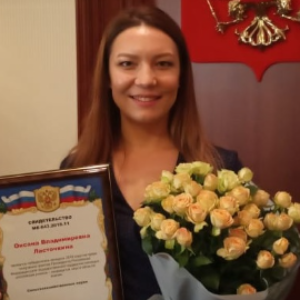Title : Endophytic Bacillus Subtilis-Mediated drought stress tolerance in Wheat
Abstract:
Abiotic factors leading to drought significantly limit major agricultural crops production worldwide. Under rapid growth population and climate change, it is important to ensure food security that is mainly possible through the increase of major cereal crop productivity, including wheat, commonly used for human consumption in many areas worldwide and supplying more than 50% of humanity’s dietary energy. Beneficial plant growth-promoting bacterium Bacillus subtilis are considered as a sustainable and eco-friendly strategy to cope with the adverse effects of abiotic stresses on plants. To date, the growth-stimulating and protective effects of B. subtilis under different abiotic stresses have been discovered in varied plants, including wheat. The mechanisms of such physiological actions of B. subtilis on hosts are not completely understood and required detailed investigations for fully use the potential of these microbes as a component of organic agriculture to increase plant productivity. In this regard, our study is focused on the revealing and understanding the mechanisms of interaction in the systems “endophytic B. subtilis – host plants – abiotic stresses” leading to the increase of plant growth and tolerance. It was revealed that endophytic B. subtilis 10-4 exert a protective effect on Triticum aestivum L. (wheat) (Cv. Bashkirsky-26) under water deficiency which is implemented in enhancing growth of seedlings (roots and shoots), their biomass accumulation, and increasing water-holding capacity in leaves both under normal and stress conditions in compare to non-inoculated control plants. The realization of wheat drought tolerance by B. subtilis 10-4 is connected with the ability of the bacterium to decrease stress-induced oxidative and osmotic damages in seedlings with involving salicylate-signaling defense pathways were found. Interestingly, farther investigations allowed discovering that wheat cultivars belonging to different ecological groups (ecotypes) of Russia (namely, forest-steppe West Siberian and steppe Volga) demonstrate different drought tolerance when inoculated by the same strains of B. subtilis in the same growth conditions. In particular, B. subtilis 10-4 promoted better growth (seeds germination, elongation of seedlings, biomass accumulation) of the Cv. Saratovskaya-55 (representative of the steppe Volga ecotype) under the conditions of the simulated drought and, in the opposite scenario, had an inhibitory effect on the same growth parameters of the Cv. Omskaya-35 (representative of the forest-steppe West Siberian ecotype). Under the drought stress, the influence of B. subtilis on the tolerance of wheat cultivars in different ecotypes was observed at the initial stages of ontogenesis, which, apparently, is associated with different adaptation strategies used against drought by wheat having as is known a great adaptive potential allowing it to widely spread over the globe. Thus, the effects triggering by endophytic B. subtilis could be varied, diverse, intertwined, and often specific. Understanding the specific features of protective mechanisms implementation under the influence of B. subtilis in different ecotypes of wheat with different strategies of adaptation to drought is of great relevance. This will help to reveal the potential of B. subtilis and increase the productivity of wheat, growing in different ecological and geographical regions worldwide.



